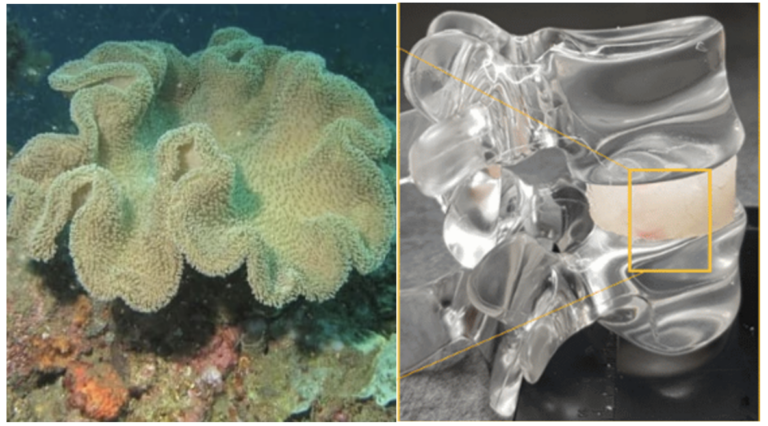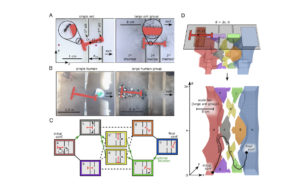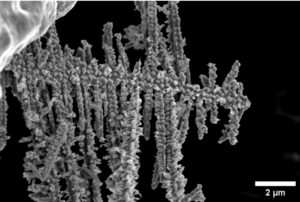Première ! Université Ben Gourion du Néguev et NIH : les protéines utilisent les ions chlorure pour communiquer à l'intérieur des cellules humaines

[:fr]Une étude collaborative menée par des chercheurs de l’Université Ben-Gourion du Néguev, le National Institute of Health (NIH) aux Etats-Unis et d’autres institutions ont identifié, pour la première fois, un nouveau mécanisme moléculaire à l’intérieur des cellules humaines. Les auteurs décrivent comment les protéines exploitent l’ion chlorure pour « communiquer » les unes avec les autres. Autrement dit, les chercheurs ont trouvé que le chlorure est un ion de signalisation qui régule la fonction des protéines. Cette découverte met en lumière plusieurs phénomènes physiologiques. Dans l’avenir, ces résultats pourront aider les chercheurs à comprendre les mécanismes qui sous-tendent plusieurs maladies, dont la fibrose kystique, l’hypertension et le cancer du sein.
Récemment publiée dans PNAS (Proceedings of the National Academy of Sciences)[:en]A collaborative study by researchers from Ben-Gurion University of the Negev, the National Institutes of Health in the USA and other institutions describes, for the first time, a novel molecular mechanism identified in human cells. The authors describe how proteins exploit the chloride ion to « talk » to each other. In other words, the researchers found that chloride is a signaling ion which regulates protein function. This discovery sheds light on several physiological phenomena. In the future the reported findings hold the potential to help researchers understand mechanisms which underlie several diseases including cystic fibrosis, hypertension and breast cancer.
Ions, which are often termed electrolytes, are charged atoms or molecules. Chloride and bicarbonate are the major negative ions crucial for the normal function of the human body. Chloride can directly and indirectly regulate water and electrolyte movement across cellular membranes since ions do not diffuse ‘freely’ across membranes due to their electrical charge. Therefore, ion transport across membranes is facilitated by transport proteins expressed on cellular membranes. In recent years, it has emerged that chloride plays a variety of roles crucial to maintaining normal physiological processes. For example, chloride, and not only sodium, is critical for blood pressure control. Moreover, a significant increase in chloride excretion by exocrine glands such as sweat glands, the pancreas and salivary glands is a hallmark of the cystic fibrosis disease which was linked to mutations in a chloride transport protein.
Recently, the findings of a collaborative research study conducted by Dr. Ehud Ohana from the Department of Clinical Biochemistry and Pharmacology at BGU and the group of Prof. Shmuel Muallem from the National Institutes of Health and others was published in the prestigious scientific journal PNAS. Dr. Muallem’s group is a leader in the field of cellular and molecular physiology. The researchers discovered that chloride acts as an intracellular signaling ion that regulates a plethora of proteins. This novel finding is of fundamental physiological importance. The research focused on regulation of NBC transport protein function by chloride. The NBC protein family members are expressed on membranes and were linked to several pathophysiologies including hypertension, breast cancer, impaired kidney function, mental retardation and vision impairments.
In the current study, which is based on the researchers’ previous findings, the investigators utilized advanced state-of-the-art experimental methods which included real-time electrophysiological measurements of protein function in live cells, computer-based predictions of protein structures and
genetic engineering. Using this methodology the research team described a protein « lock », termed a ‘motif’, that can be found in a wide variety of proteins and acts as a regulatory region that binds the « key » namely, chloride. Thus, chloride could theoretically « open » or regulate many proteins which contain the protein « lock » sequence which is described in the paper.
The research by Dr. Ohana, Dr. Muallem and their colleagues has important physiological implications since the chloride signaling mechanism regulates pivotal processes in human cells. Hence this mechanism would necessarily affect electrolyte and water regulation in the human body. This discovery holds the potential to serve as a target for pharmaceutical compounds aimed to cure diseases which are linked to chloride regulated proteins.
Recently published in PNAS (Proceedings of the National Academy of Sciences)[:]







